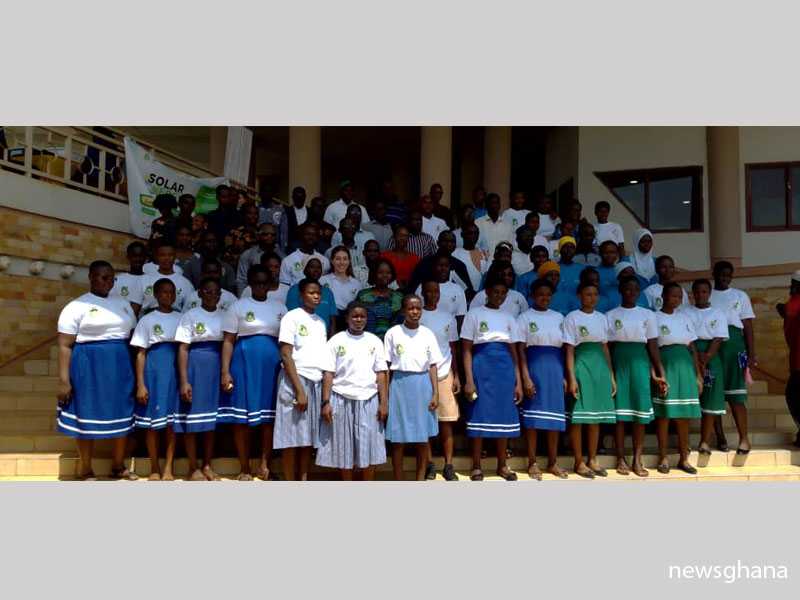In an effort to bridge the gender gap in the field of energy technology and foster renewable energy adoption in Ghana, the University for Development Studies (UDS) has launched the Energy Technology Centre for Solar Girls Project. Supported by GIZ, this initiative aims to provide girls with essential knowledge and skills in the field of solar energy.
Empowering Girls in Solar Energy
The Energy Technology Centre for Solar Girls Project is part of an overarching goal to promote the use of solar energy in various applications while instilling innovative ideas about a mixed approach to Ghana’s energy sector. The project has a specific focus on narrowing the skills gap between males and females in the field of energy technology.
One of the key objectives of the project is to alleviate the current pressure on Ghana’s energy system. With the growth of the country’s population and the increasing demand for energy, the existing energy sources, such as hydroelectric power, face significant strain. By promoting solar energy adoption, the project aims to reduce the load on the primary energy sources and create a more sustainable energy ecosystem.
Read also: Sahara Group calls for investment in Africa’s renewable energy transition
A Sustainable and Efficient Energy Future
The Energy Technology Centre for Solar Girls Project is expected to contribute to national development in northern Ghana through the sustainable and efficient use of energy resources. This goal aligns with the Centre’s aspiration to lead the way in promoting the responsible and effective use of energy resources, particularly in the northern region of Ghana.
Field-Based Education and Poverty Reduction
The project’s approach to education places a strong emphasis on practical, research-based, and field-based learning. This methodology is intended to help reduce poverty and advance national development by maximizing the efficient utilization of energy resources in the northern region of Ghana.
Empowering Female Participation in the Solar Sector
Dr. Linda Dari, the Vice Dean of Students’ Affairs at UDS, Nyankpala Campus, emphasized the importance of actively involving women in the solar sector. Encouraging and supporting the participation of females in the industry is not only crucial for achieving long-term benefits but also for promoting gender equality and equity in the region. Empowering girls to take on roles in the solar energy sector will pave the way for the next generation of scientists in Ghana, fostering creativity and efficiency in problem-solving.
Calls for Supportive Policies
Dr. Dari further called for policies that promote female participation in the solar energy sector, including incentives and support for female-led training programs, capacity-building initiatives, and businesses. Such policies can help break down barriers and create a more inclusive environment for women in the field.
FuelCell Energy, Oando Clean Energy partner to catalyse Nigeria energy sector
About the University for Development Studies
The University for Development Studies (UDS) is Ghana’s first public university in the northern region. Established in 1992, it was created by the Government of Ghana with a focus on providing higher education, undertaking research, and advancing knowledge to meet the needs and aspirations of the country’s population.
UDS is unique in its commitment to addressing the conditions and structural causes of poverty. It emphasizes practically-oriented, research-based training and fieldwork, aiming to contribute to poverty reduction and accelerate national development. The university is known for its location and multi-campus system, which enhances its outreach and community-oriented programs.
UDS offers a range of faculties, schools, institutes, and centers, reflecting its dedication to a pro-poor approach and an emphasis on field-based, practically-oriented training. The university’s goal is to play an active role in addressing societal problems and driving development, particularly in rural areas, through its teaching, research, and outreach services.




